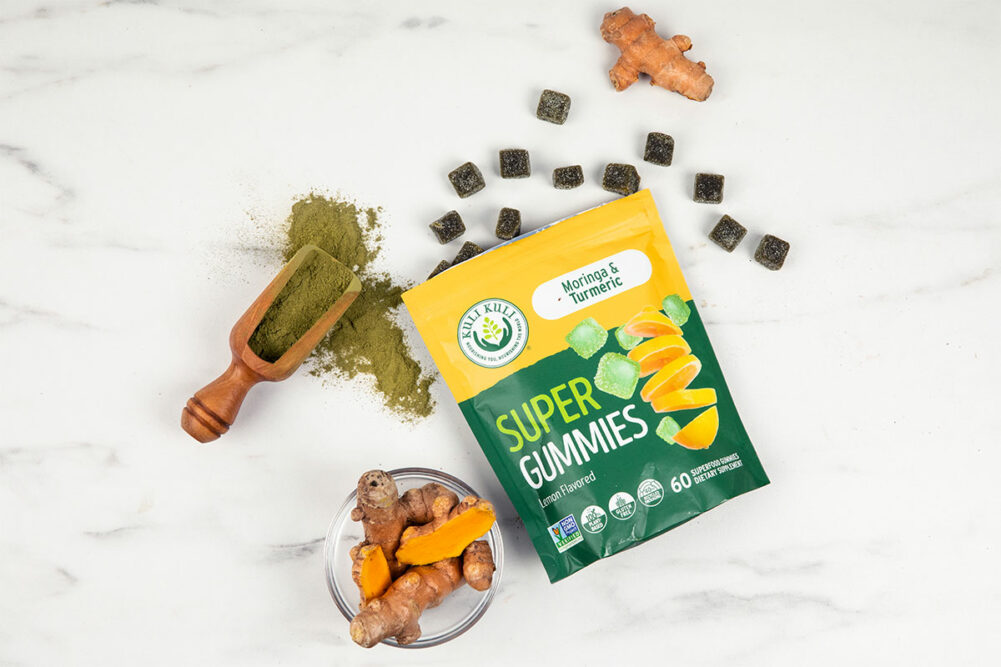OAKLAND, CALIF. — Kuli Kuli, the mission-driven maker of moringa products, has raised $1.3 million in debt financing from Whole Foods Market and impact investors to support the launch of its gummy supplements line.
Kuli Kuli SuperGummies, unveiled earlier this year at Natural Products Expo West, are plant-based and gelatin-free, packaged in pouches made with post-consumer recycled materials. Varieties include green apple, moringa and super greens, including wheatgrass, spirulina, parsley, chlorella and kale; berry, moringa and chaga mushroom; and lemon, moringa and turmeric. The company recommends consuming two gummies once or twice a day for a caffeine-free, energizing boost.
The gummies launched in Whole Foods Market stores nationwide and will be available in more than 3,000 retail stores this fall.
“We’re grateful to have mission-aligned partners who recognize the incredible opportunity for us to bring sustainable and powerful superfoods to consumers in a delicious gummy format,” said Lisa Curtis, founder and chief executive officer of Kuli Kuli.
Gummies are gaining traction in supplements, representing a $2.63 billion market, larger than powders, tablets or pills, according to Mintel data. Thirty-seven percent of US consumers prefer taking supplements in a gummy format. The number skews higher for millennial and Generation Z consumers.
Derived from the dried leaves of a plant native to parts of Africa and Asia, moringa is rich in protein, fiber, potassium, calcium and vitamin A. With an earthy green flavor, similar to that of matcha, moringa may be used in a variety of sweet or savory applications. Kuli Kuli offers a range of powders, smoothie mixes, nutrition bars and wellness shots formulated with moringa at more than 11,000 retail stores nationwide. Last year, the brand added SuperBark, a collection of snacking chocolate infused with moringa, chia seeds, quinoa and cacao, plus additional ingredients such as breadfruit, baobab, maca and hibiscus.
The company partners directly with small family farmers and women’s cooperatives around the world to source moringa leaves that meet its rigorous standards for quality and sustainability, with a focus on regenerative agricultural practices.




